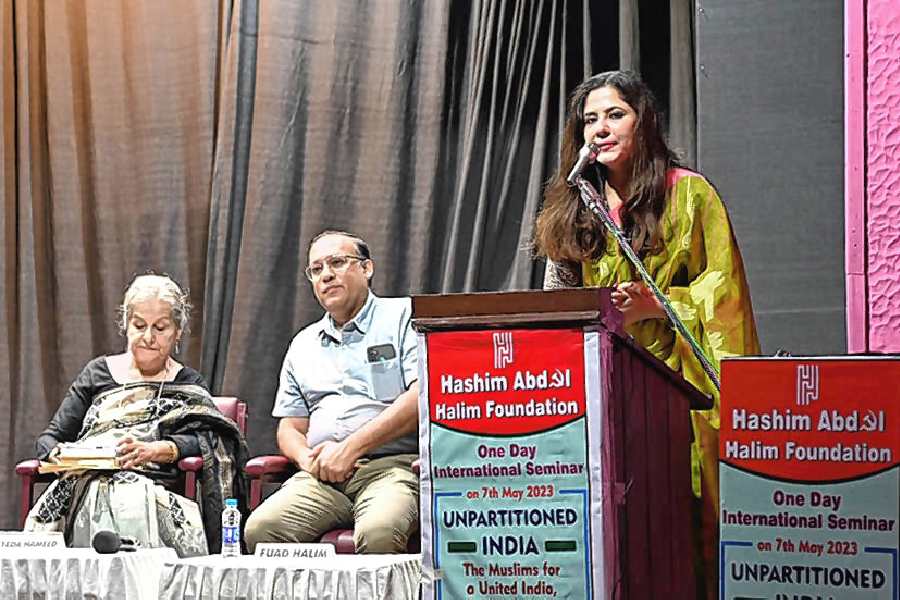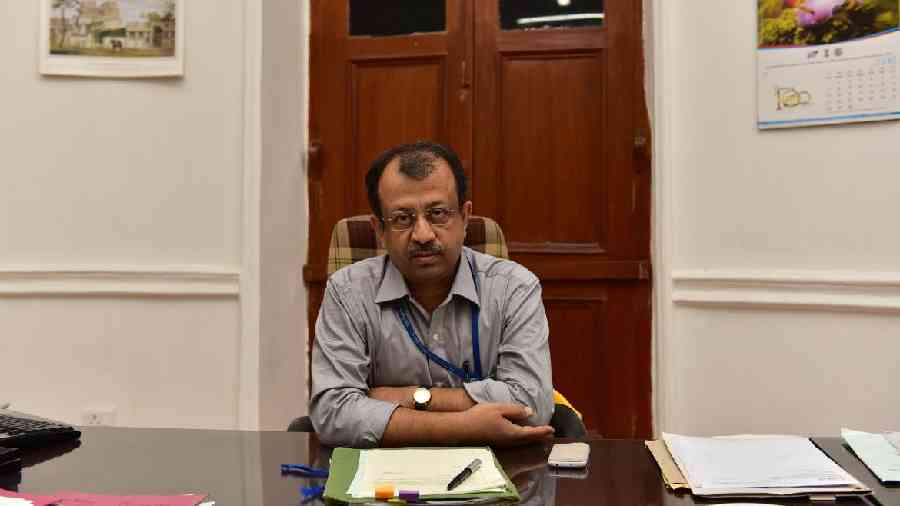Allah Bux Sumroo was a Muslim leader who opposed the idea of Pakistan before he was brutally assassinated in Sindh in 1943.
The All India Azad Muslim Conference, an organisation of nationalist Muslims, was fiercely critical of Muhammad Ali Jinnah’s two-nation theory.
Neither name may, however, strike a chord with too many people in Narendra Modi’s India, which is in thrall to the stereotype that the creation of Pakistan owed to a collective demand from Muslims.
The facts about Sumroo and the Azad Muslim Conference were among many little-known circumstances surrounding the Partition that tumbled out during a daylong discourse on “Unpartitioned India: Muslims wanted a United India” on Sunday.
“The polarisation in society is due to the identity politics revolving around the narrative that Pakistan is for Muslims,” said Fuad Halim, the main organiser of the programme, held under the banner of the Hashim Abdul Halim Foundation.
“This is, however, not right as the majority of the Muslims didn’t want Pakistan and stayed back in secular India. It is important to talk about this fact to establish the truth over the lies of the Right-wing ecosystem.”
Eighteen academics from Calcutta and beyond spoke at the conference, which discussed how Muslims in pre-Independence India had debated the issue of Partition.
An audience that included students and teachers learnt how Sumroo had given up his knighthood to take part in the Quit India movement, and how Muslim nationalists like him had resisted the Muslim League’s two-nation theory.
A separate session was held on Rezaul Karim, a freedom fighter from Bengal whose 1941 book, Pakisthan Examined with the Partition Schemes, was aimed at creating an opinion among Indian Muslims against Jinnah’s demand for Pakistan.
“When we got independence, we forgot the likes of Allah Bux (Sumroo) or Rezaul Karim. The Lahore Resolution of Jinnah (that formally proposed a Pakistan for Muslims on March 23, 1940) was remembered, but the three-day Azad Muslim Conference in Delhi, in which the resolution was condemned by almost all Muslim organisations, was not talked about,” rued Shamsul Islam, former political science professor with Delhi University.
Islam, in his address at the conference, argued that Hindu nationalists had propounded the idea of two separate nations at least 50 years before the Muslim League picked it up.
“Historians like R.C. Majumdar wrote that upper caste Hindus such as Rajnarayan Basu and his close associate Nabagopal Mitra were among the first to talk about the two-nation theory. Hindu Mahasabha leader Bhai Paramanand spoke about sending Muslims to Afghanistan sometime in 1906,” he said.
“Lala Lajpat Rai, in 1919, wrote about four ‘Muslim states’: Pathan province, Western Punjab, Sindh and Eastern Bengal. Savarkar, after taking over the reins of the Hindu Mahasabha in 1937, spoke along the same lines.”
Islam went on to say that Jinnah’s propagation of the two-nation theory was an “act of foolishness”.
Bhaskar Chakraborty, history professor with Calcutta University, said the story of Pakistan and Partition had a prehistory that should be revisited before one assessed the larger issues of community, State and individuals.
“At a time when people are linking nationhood to faith, it is important to talk about the period when people used to think otherwise. The composite and syncretic character of this nation must be studied,” said Chakraborty, who spoke on “India’s Partition: The Event and its Meanings”.
All the speakers commended the organisers for choosing a topic that directly questioned the majoritarian narrative, and most of them agreed that such a discourse could attract a packed audience only in Calcutta.
Several students like Rakhi Das, a PhD scholar from Aliah University who attended the seminar, said the daylong discourse was “enriching” as it had exposed them to various facets of India’s pre-independence politics that didn’t find enough mention in the mainstream discourse.
Most of the students said they deserved to be told the other side of the story even if it didn’t suit the ruling political class.
Maidul Islam, a political scientist with the Centre for Studies in Social Sciences who spoke to this correspondent on the sidelines of the seminar, was not hopeful that new generations would get to know about Sumroo or Karim.
“If the revised NCERT political science textbooks delete mention of a stalwart like Maulana Abul Kalam Azad, I don’t see much hope,” the young academic said.
Hasnain Imam, a member of the organising team, was more optimistic. He stressed the need for disseminating such little-known narratives across the country.
“There may be attempts, but it’s difficult to hide the truth and it will come out,” the schoolteacher said.
“Don’t forget that even much of our culinary culture and attire, down to the type of clothes worn by the Right-wing leadership, have an Indo-Persian influence.”











